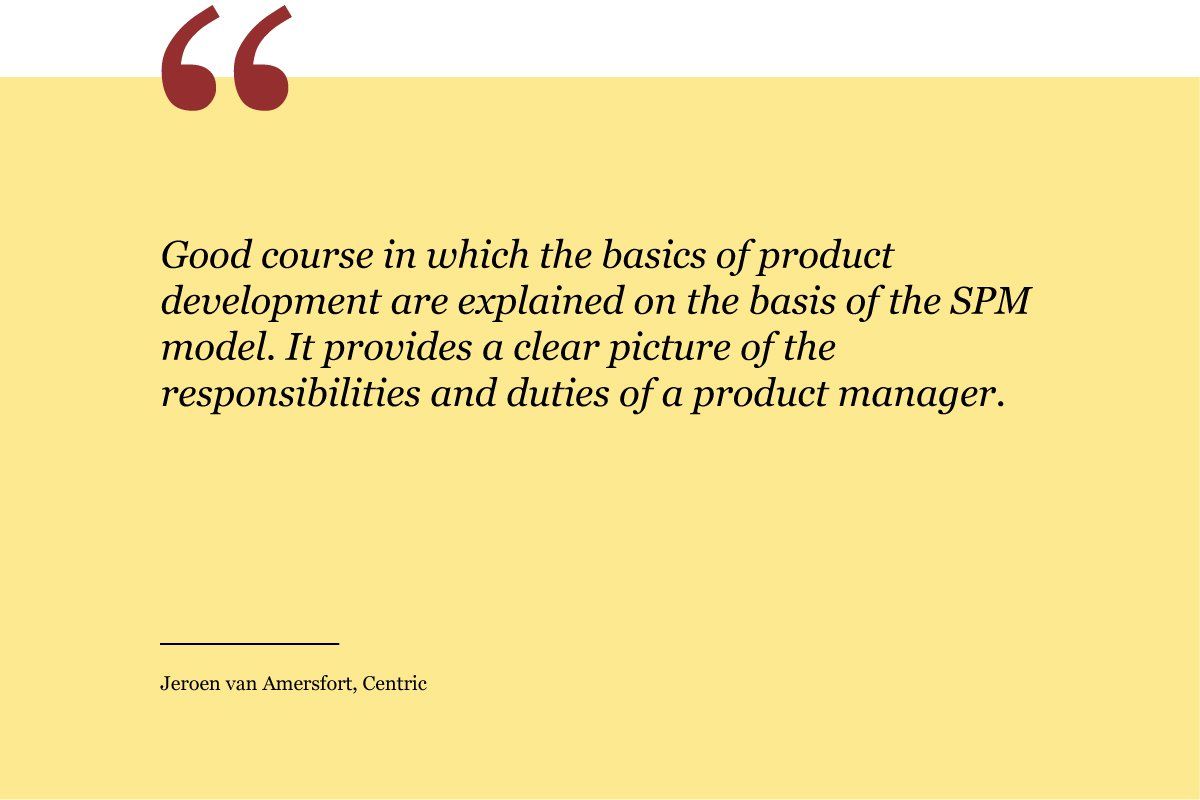Course
Software product management
Software product managers experience conflicting interests and high pressure to deliver short-cycle. Managing these interests requires broad knowledge and expertise. Without these skills, software product managers miss out on market opportunities and the market value of their products deteriorates.
For this reason Software Product Management has become an established discipline in many industries in the last ten years after the big players of the software industry – such as Microsoft, IBM and SAP – had practiced professional Software Product Management for a long time.
The role of Software Product Manager is of strategic value to the economic success of a software product. Successful software product management leads to delivery of the right products for the right market, at the right time, at the right price. A software product manager is responsible for managing software with the goal of achieving sustainable success throughout the life cycle of a software product. This generally refers to economic success, which is ultimately reflected in the profits generated. During this course you will learn what is needed to become a successful Software Product Manager.





















